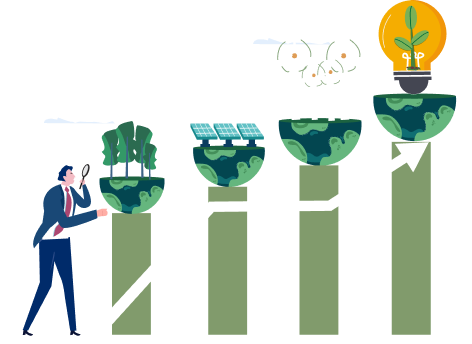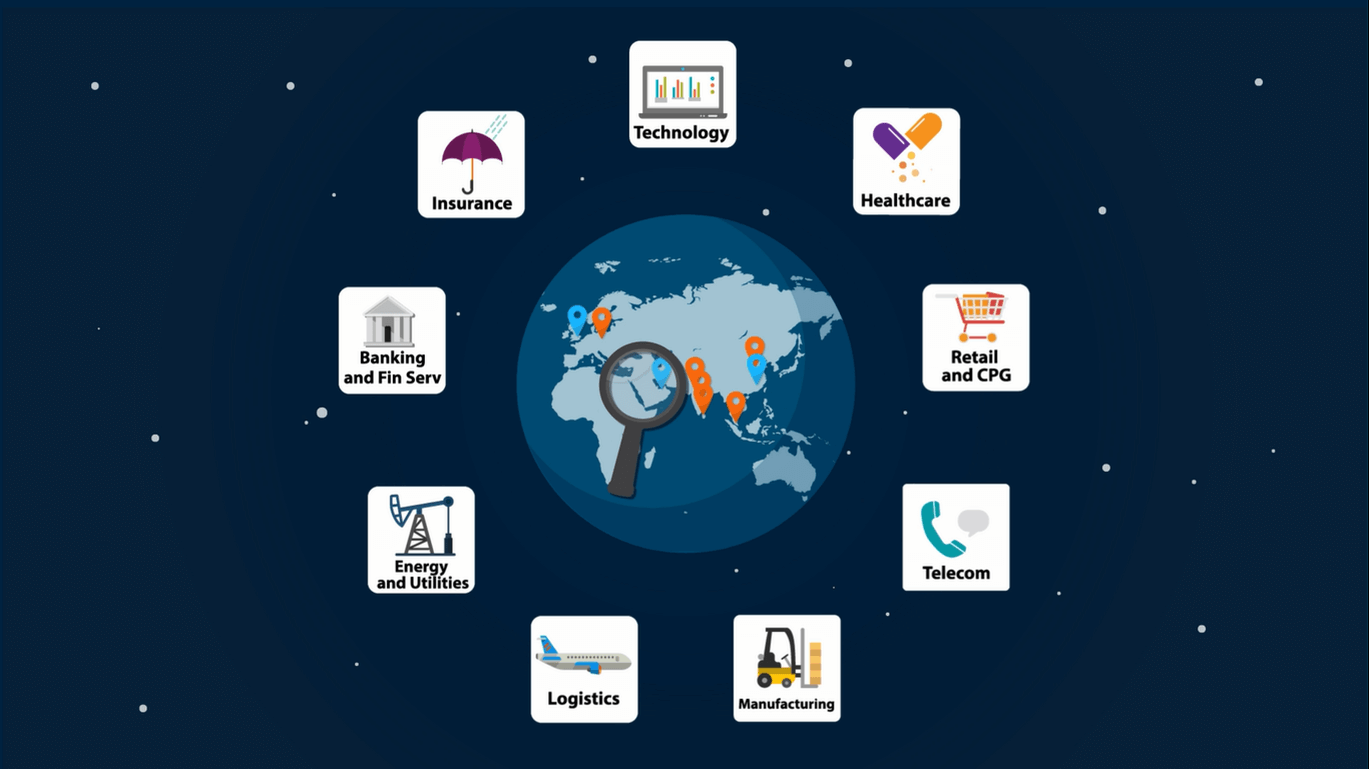Sustainable Finance Solutions
Sustainable finance has gained substantial impetus from the UN-sanctioned mandate on Sustainable Development Goals (SDGs) aimed at achieving global economic growth through environmentally and socially sustainable investments. Global businesses have identified a significant opportunity and are committing to sustainable projects and initiatives. Debt financing – particularly green, social and sustainability bonds – has emerged as the most popular means of funding. Sustainability; environmental, social and governance (ESG); and social impact investing would be at the heart of economic recovery from the pandemic. Sustainable Finance Services for Investment Banks is set to become the next growth frontier for investment banks, backed by high bond issuance and ESG advisory.
Acuity Knowledge Partners enables investment banks and advisory firms to establish and grow their sustainable finance practices by providing a wide range of customized analysis and support. At Acuity, we collaborate with the financial services sector around the world to bring our collective experience to the boardroom and beyond. We support the development of a stronger, fairer, and more sustainable financial services industry.
Our support areas cover the entire spectrum of financing products along the sustainable financial investment lifecycle. We play a vital role as a valued partner for investment banks, providing thought leadership, research and analytics as they embark to meet the growing demand for sustainable financing. We help organisations create greater value by identifying their position in the transition to a more sustainable future, as well as how they can best support their stakeholders. We're collaborating with financial services businesses to accelerate transformation by recognizing and managing risks in novel ways, as well as discovering new opportunities, so they can make smarter decisions faster. We help companies measure complete long-term value to support the right projects and innovations and convey a compelling story.
Sustainable Finance Solutions & Support we Offer
Solutions
Identifying sector-wise ESG taxonomy
Climate change framework analysis
SDG impact analysis
Analysis on sustainable initiatives
Green/sustainable bonds – opportunity analysis
Green/sustainable bonds – market updates
Green/sustainable bonds – SPO Analysis
Transition bonds – framework development
ESG Funds/entities specific portfolio analysis
Benchmarking ESG standards and regulations
Peer benchmarking
ESG scoring and rating
Thematic study
Alignment with GRI, TCFD, ISSB and SFDR
Benchmarking global sustainability standards (LEED, BREEAM, BCA, etc.)
Decarbonisation Pathways for various sector based on TPI
Portfolio assessment on ESG metrics
Coverage
ESG strategy
ESG advisory
ESG reports
Green/social bonds
Sustainable bonds
Blended finance
Green loans
Impact finance
Automation and workflow management platforms
How we are different

STRATEGIC AND CONSULTATIVE APPROACH

ONE-STOP SHOP FOR SUSTAINABLE FINANCE SUPPORT

BESPOKE AND THEMATIC-BASED RESEARCH

STRONG INTEGRATION AND HIGH BUSINESS VALUE
Further your ESG goals with our tailored data and technology solutions
Tailored support on integrating data sources, data management to strengthen your ESG framework and accuracy of reporting (Investor/regulatory).

Meet our experts
Frequently Asked Questions
What is sustainable finance investment banking?
Sustainable finance investment banking integrates environmental, social, and governance (ESG) criteria into financial decisions. It supports projects and companies that prioritize sustainability, offering products, advisory services, risk assessments, and impact investing opportunities. Its goal is to align financial returns with positive environmental and social impacts, promoting long-term, responsible investment practices. Investment Banking has been creating a pool of issuances focused on creating sustainable impact, such as green bonds and other forms of finance and financial solutions, intending to achieve a sustainable society. IBs now have separate departments that assess a company's ESG performance alongside financial metrics to evaluate risk and potential returns.
What are sustainable financial services?
Acuity has been supporting investment banks (IB) by providing offerings that incorporate the growing demand for ESG-related information and analysis. We conduct in-depth ESG research and analysis on companies and investment opportunities, assigning ESG ratings or scores to companies to allow investors to quickly gauge a company's ESG performance. We also produce ESG reports, whitepapers, and insights that analyze ESG trends, risks, and opportunities in specific industries or regions. In addition to the above Acuity helps IB divisions of global banks analyze, benchmark, and collate IB’s clients based on multiple parameters of focus. This is dependent on the focus of the financing required and planned by the client and IB respectively.
What are the various categories of support provided across sustainable finance?
As a financial research firm, Acuity has been supporting the objectives of IBs and Asset Managers since the last 20 years. We have a pool of expertise to support Investment Banks across pillars of ESG Advisory, ESG Capital Markets, Sustainable Finance Advisory, Transition Finance Advisory and Social Sustainability / Impact Investment Support. We also provide thought leadership through research reports, white papers, and webinars on sustainability trends, ESG best practices, and market developments, helping banks stay informed and educate their clients.















